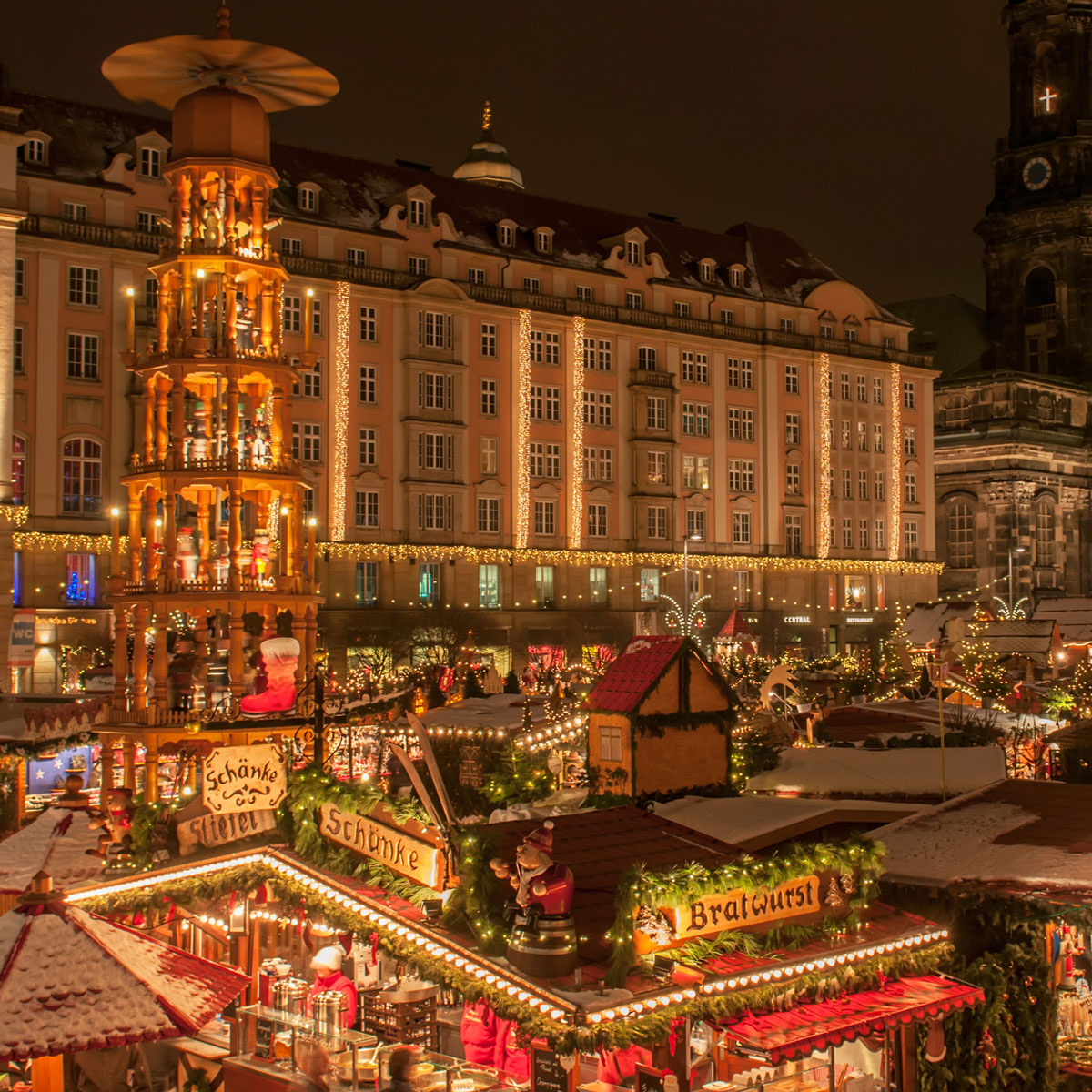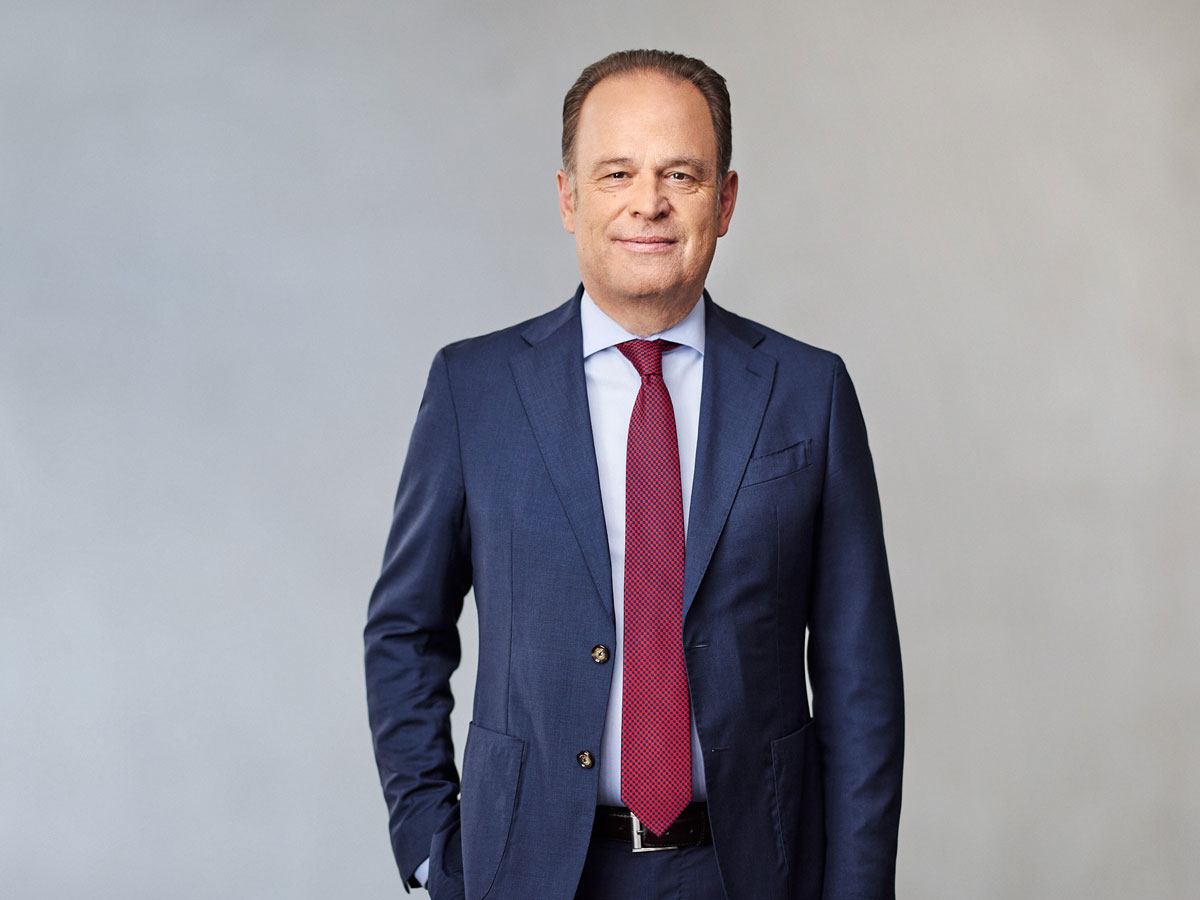
Music at Christmas markets
Check out this page if you want to know how to correctly notify GEMA of your Christmas market, how much you need to pay for licence fees and whom you can ask if you have any questions.
- Tariffs & costs
- Advice & consultations
- Press material
Not all Christmas markets are alike
To ensure the music licence we issue to you for your Christmas market is as tailormade as possible, we need to consider each event day separately. GEMA’s tariffs distinguish between days with an event character (stage programme) and days, where music is merely playing in the background. It is therefore possible that you need to submit notifications for several days separately when it comes to your Christmas market.
Programme with live music
-
Outdoors
-
No admission
-
Background music (CD/Streaming)
-
Stage programme with live music
Programme with recorded music
-
Outdoors
-
No admission
-
Background music (CD/Streaming)
-
Stage programme without live music
Only background music (speakers)
-
Outdoors
-
No admission
-
Background music (CD/Streaming)
Special cases
- Indoors or in tents
- With admission
- Background music from the radio
- Christmas events outside of markets
Register your Christmas market in the GEMA Online Portal
Marlene Kahn (Communications Department) and Lars Ebermann-Radsey (Berlin Office) answer the most important questions regarding the notification of and registration for your Christmas market in the video on the GEMA Online Portal.
Measure event space online
Pinar Gelgec (GEMA office Nuremberg) shows in the video how you can measure the area of your event with the help of Google Maps. You can attach a screenshot of this measurement as a site plan to your event registration in the GEMA Online Portal.
Press section
It’s hard to imagine Christmas markets without music. In a GEMA survey in June 2024, 91 percent of the 400 participants in the survey who run Christmas markets mentioned that music was important for the atmosphere in their market.
So far in 2024, GEMA has licensed 35 per cent more Christmas markets than at this time last year. The information service for Christmas market licensees was very well received: 87 per cent of webinar participants rated the events very highly and would recommend them to others.
Statement by Georg Oeller, member of the GEMA Managing Committee
“Since 2011, the entire area of Christmas markets must be declared when registering the event. The price for the space was in turn negotiated with the industry associations and is considered appropriate. Changes are therefore currently only being made for those markets that have declared areas that are significantly too small in previous years. However, instead of accepting the value of the music for correctly declared areas, it is publicly claimed that the fees have been adjusted. Unfortunately, the debate is currently being played out on the backs of composers and lyricists. They are suffering both economic and non-material damage.“

Frequently asked questions on the licensing of Christmas markets
When music is played at Christmas markets, whether live, from a sound carrier or a digital medium, this is a public performance of copyright-protected musical works. The German copyright law regulates that the people who composed and wrote the music must receive appropriate remuneration for it. GEMA represents this right for its more than 95,000 members (composers, lyricists, music publishers) in Germany and for more than two million rights holders worldwide.
This has many advantages for event organisers, as they can acquire the rights to almost all musical works worldwide with one licence (“world repertoire“). GEMA takes care of the processing, such as rights clearance and distribution of royalties.
In 2018, Christmas markets, which fall into the category of funfairs, generated an average of 18 euros per visit (acc. to a study of the German Fairground Association, a registered association) In comparison, the cost for GEMA licence fees in many cases is just 2.5 cents per visit of a Christmas market for the music licence.
You can calculate the expected licence fee for your event quickly and easily in the GEMA Online Portal. In the price calculator, select the option that applies to you (e.g. “Fest” or “Märkte im Freien”) and enter the information about your event. You will then receive an estimated price and can register the event directly online. Please make sure you enter the correct area: The basis for the licence is the entire event area (from the first stand to the last stand, from house wall to house wall) – even if only part of the area is covered by sound.
Go to the Price calculator
To find out whether your Christmas market actually has an event character, you need to ask yourself these questions:
- Are there programme items at fixed times?
- Is there a stage?
- Is live music played or sung at the Christmas market? (E.g. Band, music ensemble or choir)
- Is there a music-related performance, e.g. a joint Christmas carol singing or dance/acting event?
If you can answer any of these questions with a “yes”, our tariff U-ST applies for the event days in question. For all other days, the costs for your music licence are calculated on the basis of tariff M-U.
Yes, whenever music is used in public, it must be licensed as described above. It is possible to play works whose rights are not managed by GEMA or whose copyright protection has expired. These include some traditional Christmas songs that are licence-free in their original version because the authors of the songs died more than 70 years ago.
Please note: licence-free or GEMA free music must also be registered with us. This is the only way we can check the titles played and see whether GEMA free music or music subject to licence has been used. If you only play licence-free or GEMA free music, there are no GEMA licence costs.
Here you will find a list of licence free traditional Christmas songs. Please note that recent adaptions of these works (e.g. choral arrangements or sound recordings) may nevertheless be protected by copyright and therefore subject to GEMA licence fees.
Tariffs U-ST and M-U do not apply for events with admission, live concerts and events indoors or in tents (e.g. beer tents). In those cases, the licensing amount is calculated on the basis of other tariffs. Further information is provided on the pages for the tariff for events (U-V), for concert tariff (U-K) and in our tariff overview.
This was determined by the German Bundesgerichtshof (Federal Court of Justice, BGH) in 2011. The judges argued: visitors move around the entire event area. This means that the same people are not always standing where music is being played, for example in front of the stage. As a result, more people listen to the music than can fit in the sound area.
The full decision text of 27 October 2011, in which the BGH defines the basis for calculating the tariff, can be found here: I ZR 175/10 (BGH, in German)